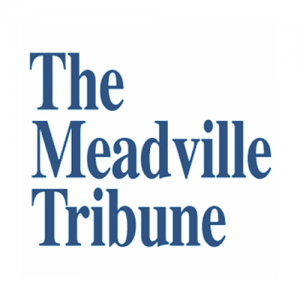
Independent voters in Pennsylvania are closely watching a federal lawsuit that challenges the legality of New Jersey’s closed primaries.
Pennsylvania and New Jersey are two of just 11 states with closed primaries. Under these systems, only party members are allowed to vote, even though public dollars pay for the elections.
Efforts to change the system have stymied because the political process is controlled by the same parties that benefit from the system. That’s not to say there’s a lack of public support for open primaries, say advocates for change.
Proponents of tearing down the barrier that prevents independent voters from participating in primaries say changes in mood don’t necessarily translate into changes in voter registration.
In Pennsylvania, 90 percent of registered voters 15 years ago belonged to one of the two major political parties. The number has barely budged. Only 13 percent of registered voters belong to a third-party or no party.
Jennifer Bullock of the Independent Voters of Pennsylvania said more voters likely would shed their party label if they could participate in open primaries. In Pennsylvania, due to gerrymandered legislative districts, many elections are all but settled in the primary.
Nationally, Gallup polls show 42 percent of Americans consider themselves “independent” voters, rather Democrats or Republicans. In Massachusetts, a state with open primaries, 52 percent of registered voters don’t belong to a political party.
Bills have been introduced in Harrisburg to dismantle the closed primary system, but all have quietly wallowed in committee. A legal challenge like the one in New Jersey could be what it takes to finally overcome resistance change at the capitol, said Bullock.
The New Jersey lawsuit, filed by the Committee for a Unified Independent Party and the Independent Voter Project, attacks closed primaries using a couple of rationales.
n One: By barring independent voters, the closed system could violate voting rights. These include the Equal Protection clause of the 14th amendment to the U.S. Constitution.
And, if you’re curious, Pennsylvania’s constitution weighs in similarly: “Elections shall be free and equal; and no power, civil or military, shall at any time interfere to prevent the free exercise of the right of suffrage.”
n Two: The New Jersey lawsuit argues that closed primaries, as party exercises, violate that state’s ban on using public dollars for private purposes.
New Jersey’s secretary of state filed a motion to have the lawsuit tossed, arguing that parties have the right to determine who participates in their primaries. As for using government dollars for private purposes, the state argued that it was a matter better settled by state court than a federal one.
Plaintiffs in the New Jersey suit include people who are registered independents and people who say they joined political parties solely because they wanted to vote in the primary.
In 2013, New Jersey spent at least $12 million on its primaries.
In Pennsylvania, primaries cost about $20 million each, said Department of State spokesman Ron Ruman. In the last gubernatorial election, that amounted to about $10 in tax dollars per vote cast.
There are 9.4 million adults in Pennsylvania. About 87 percent of us are registered to vote, but only 42 percent of adults can vote in the Democratic primary. Just 32 percent can vote in the Republican one.
So, each time the state holds primaries, the majority of Pennsylvania adults are asked to help pay for at least one election that they cannot vote in.
Bullock’s group only asks that those who pay for the primary get a chance to participate.